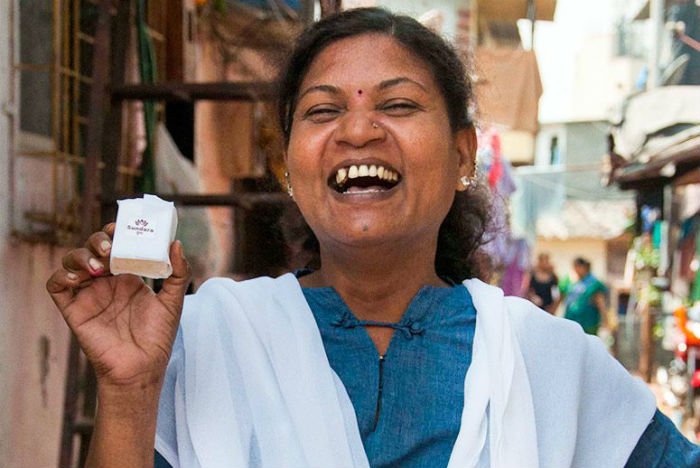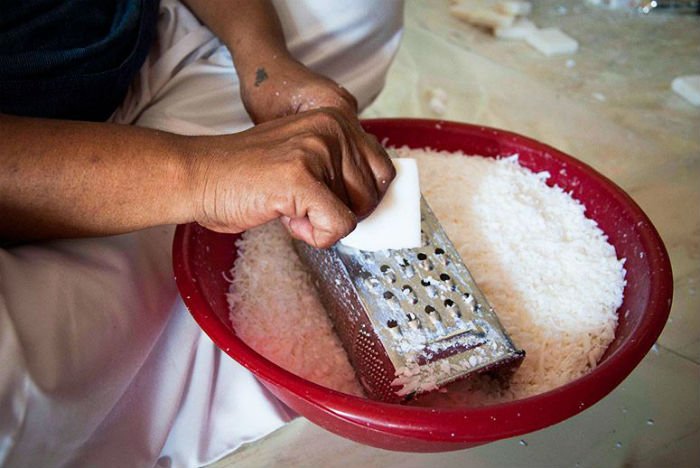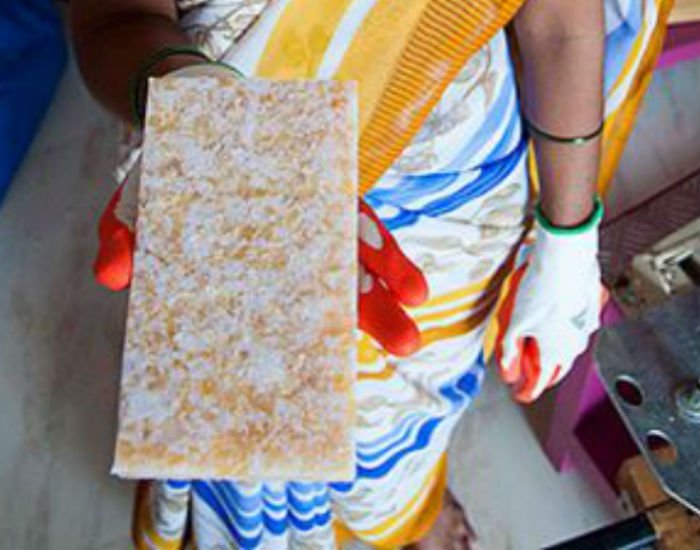
Erin Zaikis was visiting a village in Thailand when she noticed that one glaring piece of everyday life was missing.
“Never once did I see soap,” she said. “A water charity had been in this village and had built two wells and deemed it a smashing success. But no one was using soap or washing their hands.”
At the time, Zaikis was working with children outside Bangkok on the border of Myanmar for an organization combating the child sex trade. It was 2013, and after multiple visits to schools with no soap, she had to ask the students: “Where’s the soap?
“Blank stares,” she recalled.
So she decided to do something about it.
Zaikis is the founder of Sundara, a nongovernmental group that sources discarded soap from hotels and recycles it into new bars for students in India, Myanmar, and Uganda.
According to the World Health Organization, more than 2 million children die every year from diseases such as pneumonia and diarrhea, which could be prevented with a bar of soap and routine hand washing.
Unilever estimates that 70 million people in India don’t have access to soap, let alone know what it is.
Zaikis chose to call her organization Sundara, after the Sanskrit word for “beautiful,” to recognize that “we feel most beautiful when we are doing good for others and giving beyond ourselves.”
“I was really attracted to it because it was so simple,” she said. “I think a lot of times we see and experience a problem and come face to face with it and think, ‘Well, someone else is handling it.’ I really felt if I didn’t do something, no one else would have. So I couldn’t use that excuse.”
Through outreach, solicitation, and partnerships, bars of soap are collected by housekeeping in some 30 hotels. It takes time to get hotels on board—in Mumbai alone, Sundara works with 20 hotels but could take on 60, Zaikis said. Each housekeeper is given a special bag or bin to collect the used bars of soap, which are then dropped off at various workshops, where they go through a sanitizing process.
The recycling process for soap bars takes a total of seven minutes. The outer layer is scraped down so no part that has touched someone’s skin is reused. The bar is then sanitized with a bleach and alcohol solution as well as a sanitizing tablet donated by Sealed Air, a chemical company. The bars are shredded down, sprayed with the sanitizing solution again, and placed in a soap press that compacts them into blocks. The new bars are then cut into smaller pieces and readied for distribution.

About 25 percent of Sundara’s soap goes to urban slums, and the other 75 percent goes to rural villages. To date, almost 16,700 bars of soap have been handed out.
Sundara works with a network of 30 schools to distribute the soap to students, and it also works with medical clinics. Sundara representatives deliver the soap to the schools and clinics and provide instruction on hand washing and hygiene.
The organization’s largest workshop is in Mumbai. A workshop is expected to open in New Delhi next year.
Zaikis recently returned from a visit to India where she traveled to the village of Chandi, a five-hour drive from Mumbai. The people of Chandi are considered tribal; they are rice farmers and make less than 50 cents a day.
“They’re so cut off they don’t even know they should look clean,” she said. A visit to the village for a Global Handwashing Day event included a demonstration from the kids on how they’ve learned to wash their hands before and after every meal.
“They’re not just washing their hands, they were washing their faces, their legs, their feet—it’s something they really look forward to during the day,” Zaikis said. “If for a few moments they can be clean and have that dignity and spread that knowledge to their parents, that’s a beautiful thing.”
Aldrina Fernandes is the environment officer at Meluha The Fern Hotel in Mumbai, which donates about 200 kilograms of soap every month to Sundara.
“It is amazing the kind of value which is created from soap which would have been wasted,” she said in an email from Mumbai. “We are proud to be connected with Sundara, who through this wonderful model empower women, upcycle waste and most importantly save lives of children. It is great collaborating with their ever supportive team.”

In addition to providing soap to those in need, Sundara offers lucrative employment to women, from working in the workshops to recycle the soap to teaching kids about hygiene. Soon they’ll begin working with the hotels, picking up the discarded bars. In Uganda, the employees are survivors of domestic abuse. In India, some are taking home paychecks for the first time in their lives.
“Dignified employment is huge, especially in India where women don’t have these opportunities,” Zaikis said.
Take Madhuri, for example. She is 38 years old, single—which is considered a failure in Indian culture—and taking care of her family. A year ago, Madhuri’s father died, and her mother was ill. No one was working, and she had no skills that were applicable to the workforce. But when she was introduced to Sundara, things began to turn around. Today, she is the manager of the Mumbai workshop.
“Most people would turn up their nose at soap recycling, but not me—I was excited to get my hands dirty!” Madhuri said in an email. “I used to travel 4 hours a day by train (2 hours there and back) to get to my old job in Kurla for work. It was at a mall selling ice cream. I felt ashamed. My boss wasn’t nice. This took a toll on me.”
Madhuri now works five minutes from where she lives and is able to check on her mother often. She, like many other women in the workshop, takes great pride in her work.
“Here, I am friends with everyone I work with. I didn’t have this before,” Madhuri said. “We get to be social. Some women bring their children to work so they don’t have to worry about finding child care. We get to talk as friends. There is no one yelling at us, and we feel proud of the work we do. I am happy coming here every day.”
“I have inner happiness now,” she added. “Inner happiness is the most important—it is my favorite part about working here.”
This article was written by Remy Tumin of TakePart.